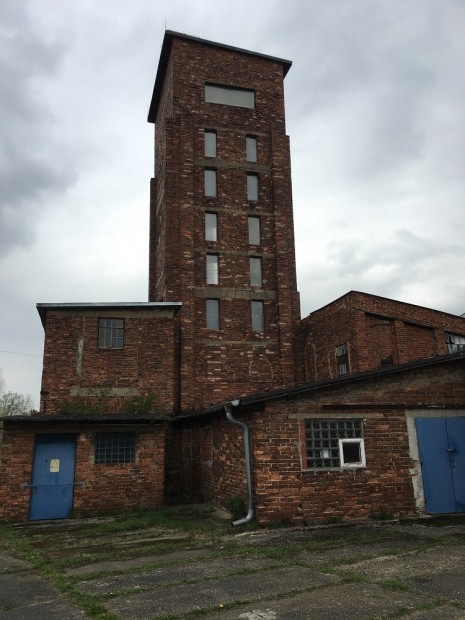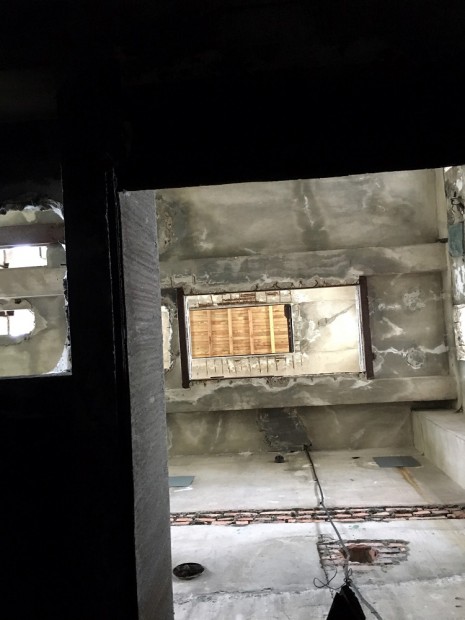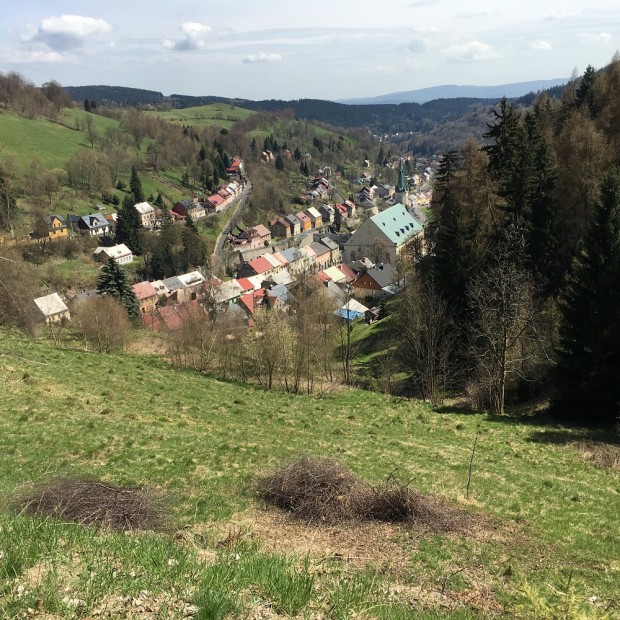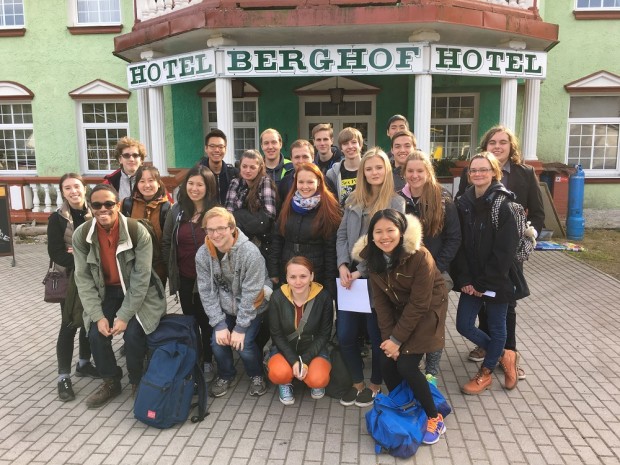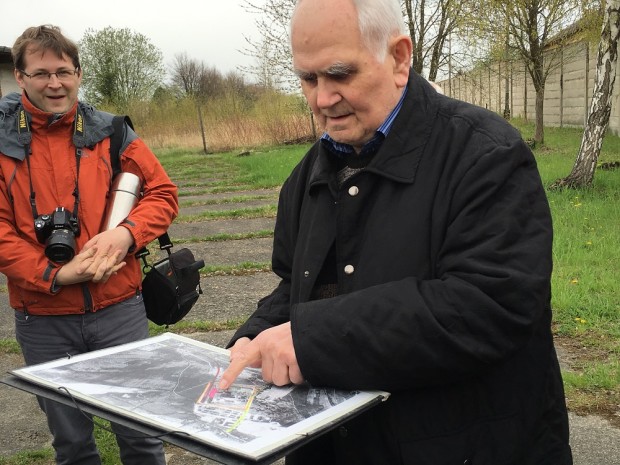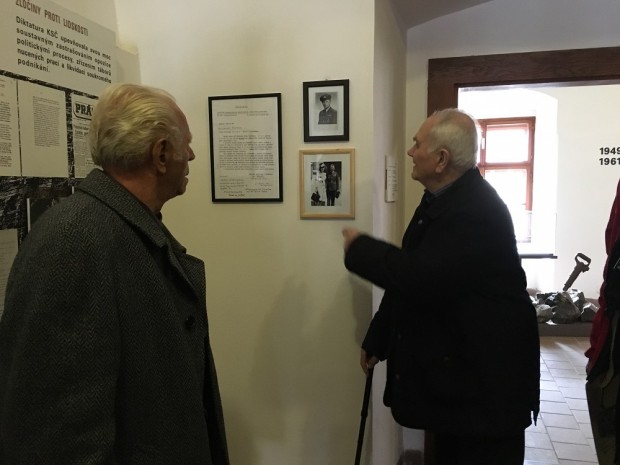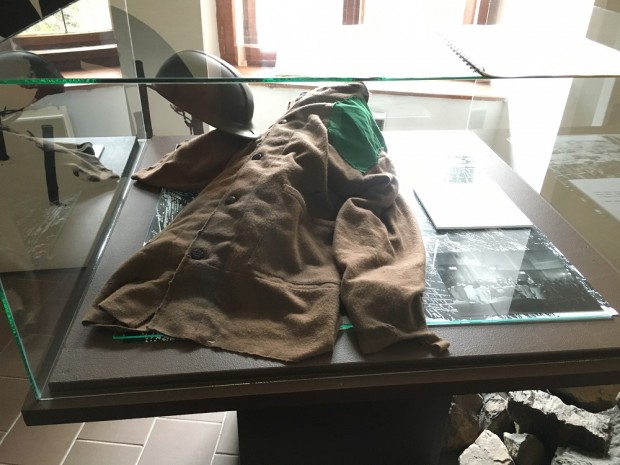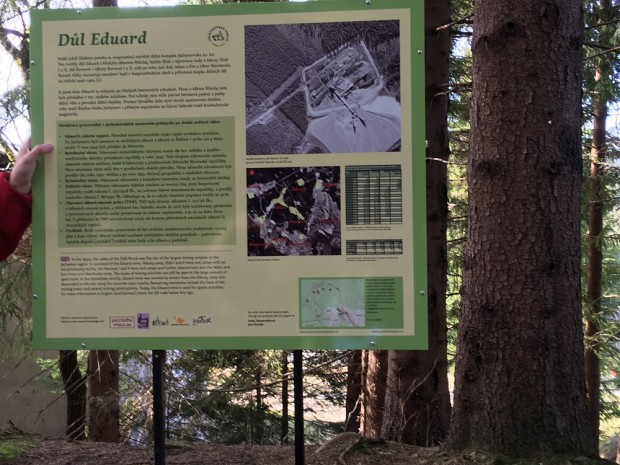Exchange Trip to Jáchymov: April 2016
On 22-23 April 2016, American students from New York University in Prague and Czech students from Chomutov High School participated in an exchange trip to Jáchymov to the former forced labor camps and uranium mines- Svornost, Nikolaj, and Rovnost- that housed political prisoners not only under Stalinism, but during the Nazi regime and post-war years as well.
As part of the exchange, Czech students were paired with American students in order to proofread and edit primary source materials, from the Czech novel “Motáky nezvěstnému” by Karel Pecka, which is a novel collection of memoirs of political prisoners and their experiences in the camps near Jáchymov. The Czech students translated these texts from Czech to English and NYU students proofread and edited the texts and then returned the corrections to the Czech students. This proofreading and editing culminated in the exchange trip to Jáchymov in which the Czech and NYU students met one another and read the edited texts at the former prison camps as homage to the victims of communism. Students also visited the mines where political prisoners were forced to work for up to sixteen hours a day. In addition, students had the opportunity to meet a former political prisoner, Mr. Mandrholec as well as the sole survivor of a prison escape attempt in 1955, Anton Tomík. Myka Cue, a second-year NYU student studying Film and Television, said that she became interested in the trip because she “wanted to learn more about history outside of the classroom and have a more immersive learning experience by partnering up with local Czech students.”
Perhaps one of the most poignant moments of the trip was when the survivors, Mr. Mandrholec and Mr. Tomík met for the first time. On Saturday, at the Jáchymov museum dedicated to Czechoslovak political prisoners, Mr. Mandrholec was recollecting his memories from his time in the labor camp. He remembered that he and Mr. Tomík did not know each other while in prison, but that their paths probably crossed without them knowing. They proceeded to call each other bratr (Czech word for “brother”) due to their shared experiences in the camps and as victims of communism. It was a bittersweet moment that rounded out the trip’s message of never forgetting the atrocities of the communist regime. After the tour of the museum, the group met the leader of a local Boy Scout troop, who told the story of how Boy Scout troops were outlawed by the communist regime, largely due to their focus on religion. After this, the group went to Red Tower of Death, a former uranium processing plant in which political prisoners worked under terrible conditions.
Overall, the trip was an educational opportunity for Czech and American students to exchange ideas and views on a traditionally taboo subject in Czechoslovak history. Over the course of the weekend, they become public messengers of the political prisoners’ stories so that they are never forgotten. In short, by learning form the past students hope to use the lessons learned from history to find ways to make a better future.
Written by John R. Leake, NYU Prague student interning at Političtí vězni.cz (Political Prisoners.eu) in the Spring 2016.
Another article written by Martha J Bekink is here.

